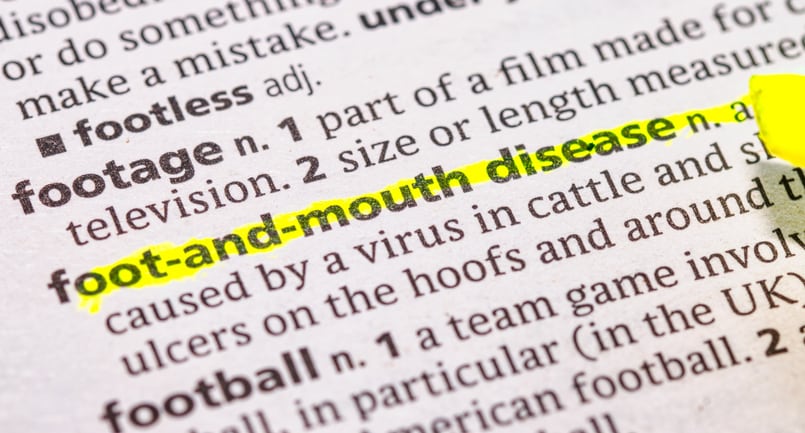On 10 January, FMD was confirmed in Germany, representing the first case since 1988 and the first in the EU in over a decade.
In response, the Department for Environment, Food and Rural Affairs (Defra) banned the commercial import of cattle, pigs, sheep, deer, buffaloes and their products from Germany in addition to new restrictions on personal imports.
However, concerns were raised over delays in imposing controls on commercial imports due to failings in Defra’s communication and IT systems, specifically with the Import of Plants, Animals, Food and Feed System (IPAFFS).
IPAFFS is a new system used to notify authorities of Great Britain before products of animal origin arrive from the EU and non-EU countries.
Whilst the Minister for Food Security and Rural Affairs told the House on 15 January that there was no delay, with appropriate processes put in place and staff at border control points issued instructions to hold goods at borders, an EFRA Committee has said evidence heard in February states the contrary.
According to the EFRA Committee chair Alistair Carmichael, the evidence was “alarming” and messages from the frontline (in local authorities and ports) suggested communication from central government was not quick or clear enough.
The chair asked for several questions marks to be answered, including when IPAFFS was successfully updated and operating as intended to reflect the policy change made on 10 January in response to the FMD outbreak.
Later, in March, Lucy Manzano, head of port health & public protection wrote to the EFRA Committee chair outlining her concerns over Defra’s unwillingness “to be transparent and provide answers in full and simple”.
“Our experience and the impact of working with Defra to date, is that they appear locked-in, and inflexible in their thinking and mindset towards this border, and concerningly without obvious appetite for inquiry or change,” Manzano’s letter reads.
“In truth, it is this set and defensive approach that is one of the most significant and unnecessary barriers we face, with the primary casualty most likely being biosecurity at this border and its consequential impact on GB.”
Two months on, in a letter to the EFRA Committee dated 2 May, Defra confirmed IPAFFS was updated on 16 January 2025, alongside providing some detail around the quantity of prohibited foods that entered the country between controls being imposed and the update.
In the letter, the Department said that non-compliance data during that time was held by Border Control Post officials, but from the data it’s been able to gather it estimates that three consignments auto cleared but should have been detained at the border.
Yesterday (6 May), the Committee came together again, with chair Carmichael questioning the Baroness Hayman of Ullock, Parliamentary Under-Secretary of State.
The Baroness said the department “reacted very swiftly” to the news of the FMD outbreak, notifying the port health authorities on the day the outbreak was confirmed.
“We moved as quickly as possible to update the digital systems that we use but in that small gap we ensured there was proper information shared, port health authorities talk to each other as do border forces and so on…to make sure we were doing our very best to stop any infected products coming in,” she added.
“We have to review what’s happened – are we happy and go over it again. As far as I’m concerned when you have any kind of risk, you have to then analyse to see if you can make improvements.”
In response, Carmichael said the Committee was mindful that it’s a brand new system but questioned why it has been "so difficult to get information out of the department” throughout the process.
He asked: “Did you not know that information or did you know and just not want to tell us?”
“I would say neither of things. I would suggest there have some teething problems with correspondence in Defra that we are currently tackling,” responded the Baroness.
“Correspondence [between myself and the Committee] has been taking longer to respond to than I have been comfortable with and we are looking to speed things up.”
The Baroness apologised, with Carmichael stating the Committee did not want to be “public executioners” but that it does “need transparency”.
He added: “If that’s lesson learned, we’re happy to accept that.”


